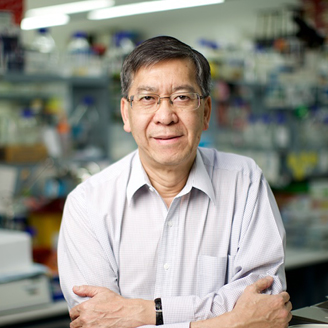Project Overview
Latest news: Expressions of Interest invited from precision medicine research teams.
Expressions of Interest (EOI) are invited from paediatric precision medicine research teams seeking to use the subsidised services of the Luminesce Alliance Functional Genomics Enabling Platform.
The EOI is open to Luminesce Alliance partner organisations (Sydney Children’s Hospitals Network, Children’s Medical Research Institute, Children’s Cancer Institute, University of NSW, University of Sydney). For full criteria read more
About the platform
What it is
We now understand that genes are responsible for disease. But we don’t yet know how to translate this knowledge into treatments for children.
Functional genomics is the study of how genes and parts of the human genome contribute to different biological processes. It looks at how genes and other parts of the biological system work together to cause disease. This understanding can lead to:
- improved diagnosis of childhood cancers, neurodevelopmental disorders and genetic diseases
- better treatments such as new and novel therapies and medical technologies
- better access to first-in-human clinical trials in for children in NSW
- better genetic counselling.
What we do
The Functional Genomics enabling platform brings together all the current clinical and research activity across Luminesce Alliance, including teams working in cancer, rare genetic diseases and neurodevelopmental disorders.
The platform focuses on building our knowledge base of genetic variants that are of uncertain significance, inadequately understood, or novel. We model disease using stem cells and organoids (mini-organs grown in the laboratory using stem cells) and use new functional genomics methodology to understand genomic abnormalities in cancer. We can then test new therapies for a range of conditions including:
- inherited retinal disorders and vision impairment
- neurodevelopmental disorders
- telomere disorders – haematological diseases and bone marrow failure
- paediatric cancer.
Our platform
The following services will be conducted in the platform.
- Disease modelling using stem cell products and stem cell-based tissue organoid of genetic diseases and neurodevelopmental disorders to gain actionable knowledge of disease-causing mechanism and potential therapeutic targets and treatment options.
- Disease modelling using stem cell models for bone marrow failure and telomere biology diseases.
- Preclinical modelling of gene therapy for genetic diseases and neurodevelopmental disorders.
- New class of evidence of gene-dependencies from Cas13 targeting contributing to clinical recommendations for childhood cancers; and leading to drug discovery and clinical trials.
- Proof-of-principle evaluation of the efficacy of stem cell therapy of blinding eye disease.
- Preclinical modelling of molecular therapy for neuroinflammatory diseases.
- Process development research on cGMP manufacturing of stem cell products for stem cell therapy.
- Bioengineering of stem-cell derived tissue constructs for regenerative medicine.
Collaborations
- Children’s Medical Research Institute
- Sydney Children’s Hospitals Network
- The University of Sydney
- Peter MacCallum Cancer Centre
- Children’s Cancer Institute
- THerapeutic INnovations for Kids (THINK), Children’s Cancer Institute



 Back to Research
Back to Research

